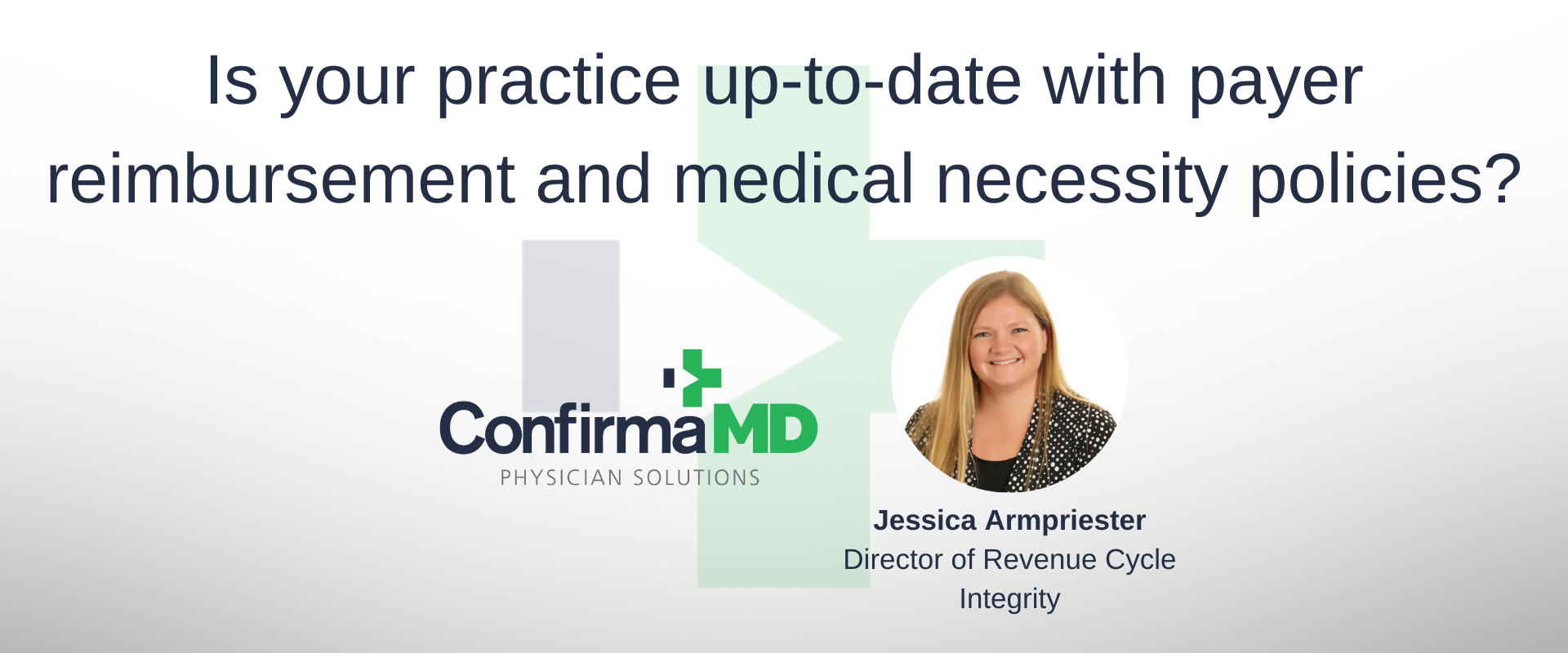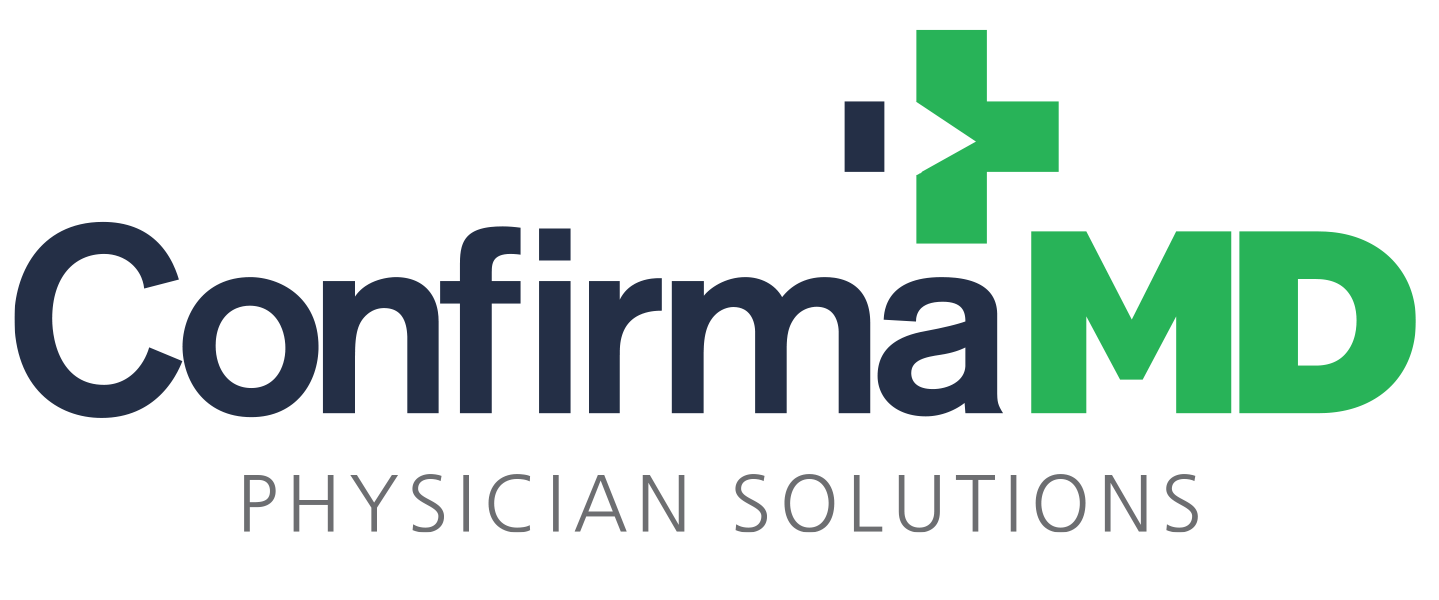

Staying up-to-date with payer reimbursement and medical necessity policies is essential for your practice. Jessica Armpriester, ConfirmaMD’s Director of Revenue Cycle Integrity, has what you need to know for success. Jessica and her team stay current on new payer policies and actively educate and communicate with providers and staff. She works to break down the communication barrier between payers and physicians.
Reimbursement policies ensure a practice or facility is paid appropriately based on the codes used to describe the services provided. The absence of a policy does not indicate that a service is covered. These are determined based on the individual patient benefit package. Staying up to date with reimbursement helps a practice know what codes are covered and approved by insurance.
Medical policies are the science and rationale behind why a code is either medically necessary, not medically necessary, or investigational. These policies help direct the criteria required for a patient to be covered for the service.
While some payers may combine their reimbursement and medical policies, both are important to keep track of. Payers can update their policies once a quarter, and staying on top of the changes can set your practice up for success. Instead of spending hours on the phone with payers, these policies assist with determining claim denials or claim denial prevention. While the reimbursement policy will let you know what is covered, the medical policy guides you through when it is covered and what criteria should be documented to meet medical necessity.
Director of Revenue Cycle Integrity, Jessica Armpriester
Learn something valuable to your practice?
Stay notified of when we publish new blogs:

